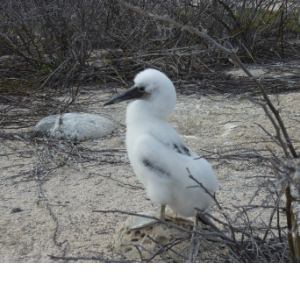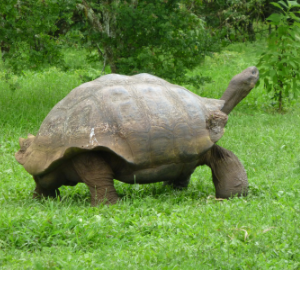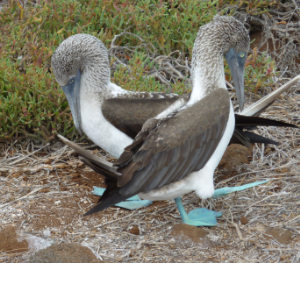
We’ve all heard it over and over again about the irreversible damage caused to the planet because of our habits of over consumption. Social media or plain “green” activism is great to create a sense of awareness. It is a nice feeling to like or share a post on planet friendly causes. But this will not change anything. Our daily habits affect every part of our life. Taking time to practise habits that care for the planet, remind me of self-care too.

We have an obligation to be proactive and share in the responsibility of caring for Mother Earth. Money and time are yours, but resources belong to the society and Universe at large. If we accept that we are each powerful in our own way and if we commit to one small step towards the lifestyle revolution we so badly need, then we would have done our bit in saving the planet.

REDUCING THE USE OF PLASTIC IN YOUR HOUSEHOLD
Plastic is ubiquitous and once you start looking around you realise how much and how often plastic is used. I cook rice in the microwave and I used to use cling wrap to cover and rest the rice before serving. Now I use a dinner plate instead. Same goes for covering and reheating leftovers. I have started repurposing bread bags and now take them to the markets to get fresh produce. If you can manage your household without buying products packaged in plastic you are winning. Reducing plastic one container at a time is still a step in the right direction. Commit yourself to saying NO to products that are over packaged.
TAKE A LOOK AT YOUR SHOPPING HABITS
I am not talking about just grocery shopping but also clothes, gifts and every other item we spend our hard earned money on. Have you thought about what you need and what you want or what would be nice to have? I know that this thinking may seem drastic but honestly I feel free, now that I started thinking and following this. If you don’t have to spend a dollar, don’t spend a dollar. This does not mean you need to be stingy or miserly, just be a careful and conscious spender.
A MINIMALIST APPROACH
Advertisers constantly bombard you saying there is a flash sale on. Don’t be tempted as there will be another one just as soon. Like I said don’t be an impulse shopper. I call this my minimalist approach – do a virtual shop and put them in your cart, sleep on it and if you still need them the next day you can get them or let it go. This really works. Declutter and you will find hidden and tucked away pieces or items you didn’t know existed. Do you know that the fast fashion industry produces more carbon emissions than the aviation and shipping industry combined?
KNOW YOUR SEASONS
For groceries know your seasons. Don’t try to buy imported strawberries in the middle of winter and wonder why you have been charged $10 per punnet. One mantra you can follow is buy local and seasonal.
EMBRACE ONLINE
Embrace onlineand ask yourself do you really need the till receipt for bread or milk you just bought? All your statements and bills are available online. There are Apps for just about everything one requires or uses on a regular basis so embrace all those as they do save paper in the long run.
MEATFREE MONDAYS
I think this is the easiest way one can do their bit for the environment. If you have to drive to get from A to B and can’t give up on all the other things to reduce your impact, you can start with Meatfree Mondays. There are a number of tested and easy vegetarian recipes on my blog and you may end up being a vegetarian like me. You can start with one meal and look for ways you can substitute food of animal origin with plant origin. Tofu and coconut milk are my favourite substitutes.
ENERGY SAVING TIPS
Everything about our day to day living is convenience driven because we lead such busy lives and to make a small sacrifice is a big ask. I manage to do full loads of washing by saving up all whites for a week. Same with business wear, sheets and towels. Towels and sheets get the soaking treatment so I can do a cold wash. Delicate clothing gets the hand wash treatment as it seems too wasteful to run the 40 minute washing cycle for one item. You do not have to wash after each wear. You can do the sniff test or like jeans put them in the freezer to freshen up. I hang all washing out mostly and when they are cold or damp, I might use the dryer for five minutes to get the coldness out. We only use the dishwasher after a dinner party otherwise hand wash everything because it is faster and more efficient. Open plan rooms use a lot of energy to heat, so we close the doors and heat the area we are spending time in. Also convection heaters are more energy efficient than other type of heaters.
FOOD WASTE
20-30% of all food produced is wasted. According to this, in terms of dollars and cents, an average family would be throwing away about $3,500 worth of food. The main reasons could range from didn’t get a chance to cook, food was not stored properly, food expired or it seemed like a good deal.
MEAL PLANNING
Always plan your meals ahead of shopping or at least have an idea of what you would have for each day of the week and make a mental note of your requirement. Do not shop on impulse. Make a shopping list even for groceries to ensure that temptation does not reach your trolley.
FOOD STORAGE
Check whether you are storing your fresh produce correctly. Yes everything wilts after a certain time in the refrigerator. To extend their life, cover with a wet cloth or store in paper bag. Apples and pears need to be refrigerated otherwise they would continue to ripen outside. Strawberries and any berries should be removed from their punnets and stored on a platter in the refrigerator. So learn how to store your fresh produce correctly so you would not have an excuse.
USE BY & BEST BEFORE
Understand the difference between use by and best before. If a food item has use by date and the date has passed, you should not be eating as it could be unsafe. Best before on yoghurt, cheese or bread is an indication that the item is at its optimum best by this date. You can confirm it is safe to eat past this date if there is no mould and looks alright.
BUY TWO GET ONE HALF PRICE
Do not fall for buy two for $6 or just one for $4. It seems like a good deal but you are spending the additional $2 for something you may not be able to consume within its optimal date. Buy what you need even if buying an extra packet is a good deal. What is the point in paying the $2 more and having to throw it away in the end?
In conclusion, if you want to avoid food waste, buy what you need, store correctly, cook or freeze.
CONSCIOUS TRAVEL
I often wonder the point of travel when one goes to an all-inclusive resort and for the entire holiday you just move between your room, deck chair and resort restaurant. Overtourism has become a thing because of selfie frenzy and several cities round the world are suffering the effects of this. What is conscious, responsible travel? Simply put, it is traveling with one’s conscience and connecting with others in a particular place. Empathy meets exploration. For accommodation, I try to look for locally owned and operated boutique hotel as opposed to a global chain. Eat local be it in market stalls or local Ma and Pa eateries. If you must shop for kitsch, buy from a co-operative or in a local market and do not bargain. Be kind and generous wherever you can.
